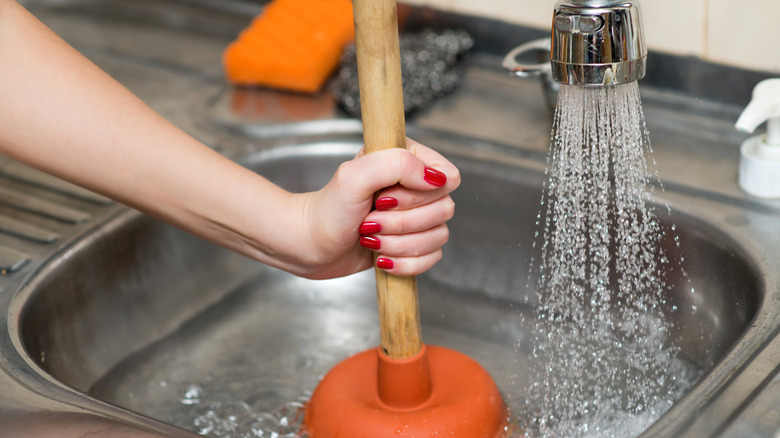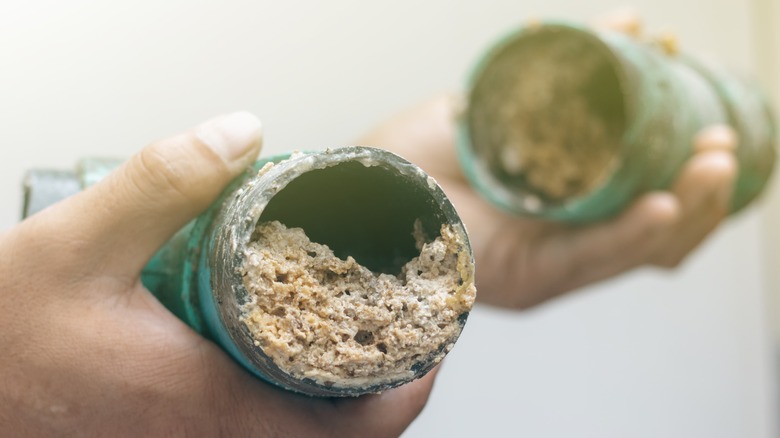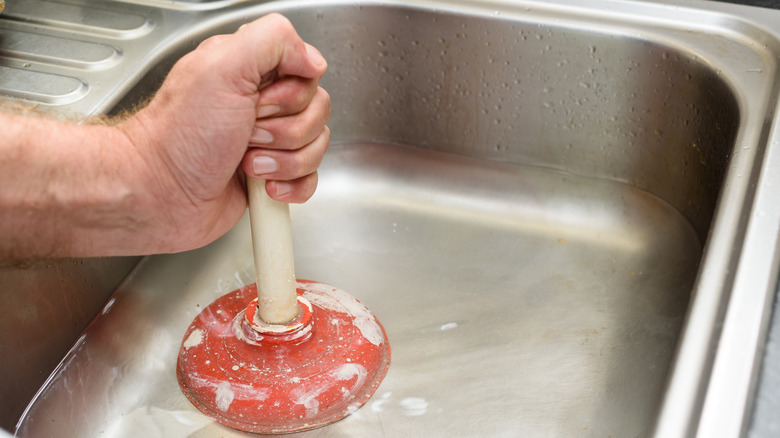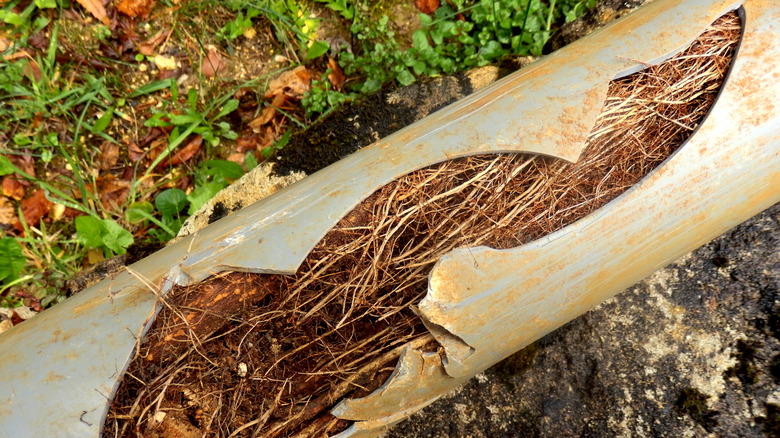3 Likely Reasons Why Your Kitchen Sink Isn't Draining
It's frustrating when your kitchen sink is suddenly not draining, and it often happens when there's a pile of dishes to wash. Other times, the water drains, but it takes significantly longer than it should. When this happens, you do have some steps to take to find out what's occurring.
Most kitchen drains connect to the drain-waste-vent system in your home, which moves wastewater from the sink down a series of pipes until it reaches the main sewer line in the house, according to Plumbing Sniper. They work utilizing gravity, which means once you open the drain, water should simply flow down and out of the home. It gains speed as it moves downward, which allows the wastewater to move through the small p-traps located along the route.
If it's not draining or draining very slowly, that often means something is blocking the path and limiting the movement of water.
Sludge is backing it up
One of the most common reasons for drains to back up is grease. Any time you wash something or pour grease, oil, or other fatty products down the drain, you create the risk of a buildup. There's often an unpleasant odor if it's occurred over time. You are also likely to have standing water that does not go down the pipe.
Sludge may also create a gurgling noise as small amounts of water get past the material and encounter air pockets. According to Mr. Rooter Plumbing, this type of problem often occurs over time, worsening as more material is put into the drain.
There are a few ways to clean a clogged sink, including pouring hot water down the drain to try to melt and dislodge the material. You may also be able to use equal parts of boiling water and vinegar to try to flush out the drain. Place baking soda in the drain opening before pouring this mixture for an enhanced effect.
The garbage disposal isn't working
Another potential cause for a backup in the sink could be your garbage disposal. You may notice that the garbage disposal does not run or if it turns on, nothing seems to go down. Never put your hands into it to try to remove a blockage.
Sometimes the drain line has a blockage that causes this to occur. If the water is backing up into the side of your sink without the disposal, it may be possible to fix it. Fill that side with several inches of water, plug the garbage disposal side of the sink, and then use a plunger to clear the drain. You may need a plumber's help if the clog does not remedy like this, writes American Appliance Repair.
If the garbage disposal was working and isn't any longer, contact a plumber to take a closer look at what's occurring. Don't put off fixing a slow draining sink, as that can lead to odors and bacteria buildup.
Tree roots are in the way
When nothing else seems to be the problem, there could be a larger concern at hand: tree roots. It is not uncommon for trees to push roots toward water sources. They can detect the water in the drain lines running from your home through to the street. Sometimes those roots are strong enough to push through and break the sewer line. They continue to grow into the line, taking up more space and eventually blocking the flow of material out of your home.
How do you know this is happening? Look for gurgling sounds coming from the sink and toilet. You may also have a shower and sink drain that's moving slowly, writes All Masters Plumbing. If the problem with the drains seems to be across the whole home, then it could be tree roots.
This is something a professional can repair. Hydro jetting the lines could be enough to push the material out. Some people may need more extensive repairs, though, if there is significant damage to the pipes. Call a plumber for help with this project to ensure it's repaired properly.



